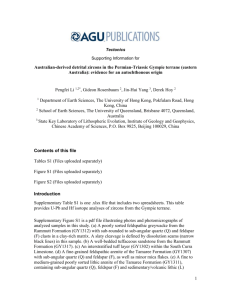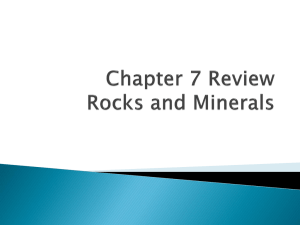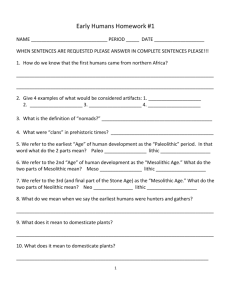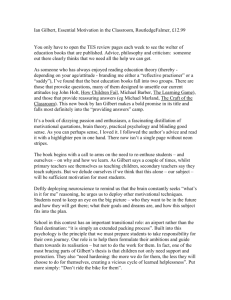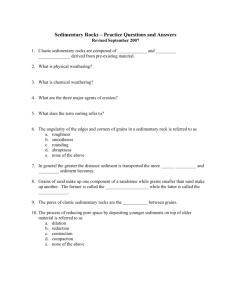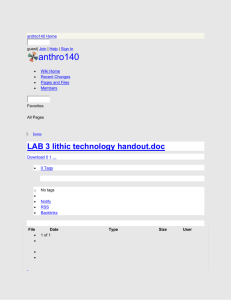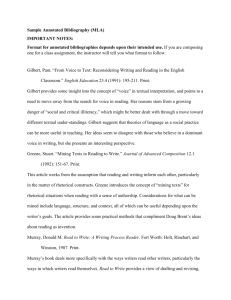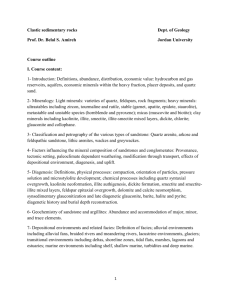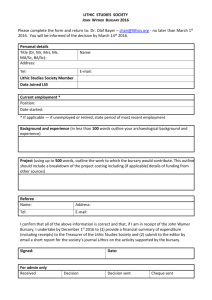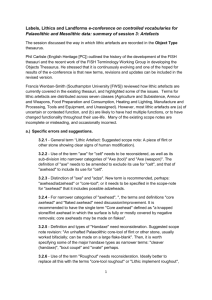Lecture 7 notes
advertisement
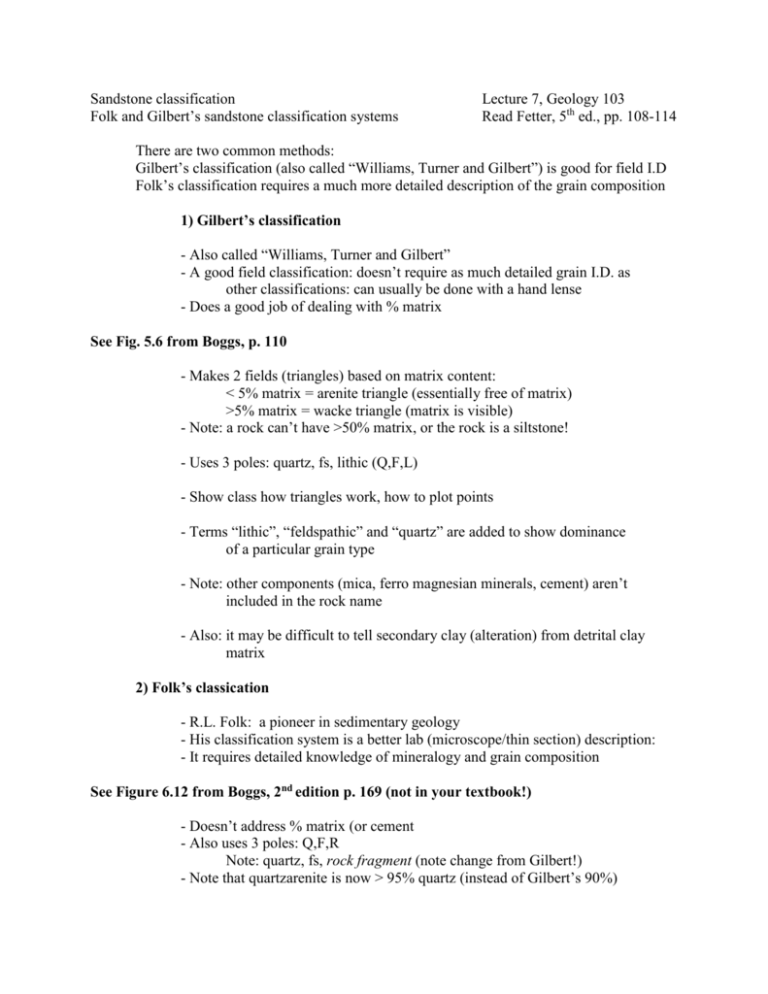
Sandstone classification Folk and Gilbert’s sandstone classification systems Lecture 7, Geology 103 Read Fetter, 5th ed., pp. 108-114 There are two common methods: Gilbert’s classification (also called “Williams, Turner and Gilbert”) is good for field I.D Folk’s classification requires a much more detailed description of the grain composition 1) Gilbert’s classification - Also called “Williams, Turner and Gilbert” - A good field classification: doesn’t require as much detailed grain I.D. as other classifications: can usually be done with a hand lense - Does a good job of dealing with % matrix See Fig. 5.6 from Boggs, p. 110 - Makes 2 fields (triangles) based on matrix content: < 5% matrix = arenite triangle (essentially free of matrix) >5% matrix = wacke triangle (matrix is visible) - Note: a rock can’t have >50% matrix, or the rock is a siltstone! - Uses 3 poles: quartz, fs, lithic (Q,F,L) - Show class how triangles work, how to plot points - Terms “lithic”, “feldspathic” and “quartz” are added to show dominance of a particular grain type - Note: other components (mica, ferro magnesian minerals, cement) aren’t included in the rock name - Also: it may be difficult to tell secondary clay (alteration) from detrital clay matrix 2) Folk’s classication - R.L. Folk: a pioneer in sedimentary geology - His classification system is a better lab (microscope/thin section) description: - It requires detailed knowledge of mineralogy and grain composition See Figure 6.12 from Boggs, 2nd edition p. 169 (not in your textbook!) - Doesn’t address % matrix (or cement - Also uses 3 poles: Q,F,R Note: quartz, fs, rock fragment (note change from Gilbert!) - Note that quartzarenite is now > 95% quartz (instead of Gilbert’s 90%) - Subdivides lithic and feldspathic field - Terms: quarzarenite, subfeldsarenite, sublitharenite, feldsarenite, lithic arkose, litharenite, feldspathic litharenite - Note: ends of diagram can be further subdivided: produces 2 more triangles: a) Feldsarenite = K-feldsarenite or plagioclase feldsarenite i) Lithic arenite = sedimentary litharenite, igneous litharenite and phyllarenite b) Sedimentary litharenite can be further subdivided into a 4th triangle!! More terms: Sandstone or shale litharenite, carbonate litharenite, chert arenite - Again note: many crystalline components (mica, ferromagnesian minerals etc..) aren’t counted - This system seems complex, but it is actually very good, probably the most commonly used by practicing sedimentary petrologists 3) Other sandstone terms to know - Arkose: An informal term for a rock that is rich in feldspar (>25%) - Graywacke - Graywacke is an old, pre- plate tectonic term that refers to continental margin deposits. - Graywacke has lots of genetic implications: abundant chlorite, abundant matrix and lithic clasts, continental margin deposition, dense (border on low temp. metamorphism) - This term should probably be abandoned - “Wacke” (as used in ss classification systems above) is non-genetic
